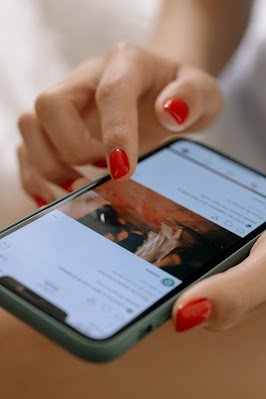Remember how happy you were when someone you liked told you they liked you or something you did? Today, a small blue thumbs-up symbol might elicit the same feel-good response.
It's no surprise that so many individuals are hopelessly addicted to social media platforms like Facebook, Instagram, TikTok, and others. "It has been proven that social media 'likes' influence the part of our brain that deals with memory."
"Rewards," says Edgardo Juan Tolentino, MD, Chairman of the Neurological Sciences at Makati Medical Center (MakatiMed), the premier hospital in the Philippines. "The more 'likes' you have, the better." Dopamine, a hormone associated with happiness, is released."
That's a lot of happy hormones for Filipinos. According to the revised study "Social Media Statistics in the Philippines," which is based on the Digital 2023 Global Overview Report, 84.45 million Filipinos (72.5% of the country's population!) spend an average of 3 hours and 43 minutes devoted to their preferred social media platforms.
According to respondents, the main motivation for using social media is to stay in touch with family and friends. But don't be surprised if they stay for their dopamine dose as well: 30% of total users are between the ages of 18 and 30. When between the ages of 18 and 24, when people desire attention, validation, and a sense of self. It's a difficult era to be alive in, with fake news, cyberbullying, and so on.
"It’s certainly a tough age to be at a time of fake news, cyberbullying, and love scams. “As great as social media is, it’s traced to depression, isolation, ruined reputations, financial debt, and lives lost of vulnerable individuals,” Dr. Tolentino points out.
“There’s nothing wrong about being appreciated through the number of likes, followers, and positive comments on your post. We all seek to be liked by others,” adds the MakatiMed health expert. “Problems arise when you hinge on people’s every opinion of you—and many of them aren’t even true. Few likes and many mean comments tend to make you wonder whether you are indeed likeable.”
Still, social media can benefit your mental health. “Just make sure you spend as much time offline, cultivating genuine relationships with family and friends in person,” Dr. Tolentino advises. “Have a solid sense of self, so that you are not defined by the number of likes or favorable comments. Learn to distinguish authentic, helpful sites over ones that spread false information, put you down, encourage self- doubt, or convince you to harm yourself or others. “Above all, before you want anybody to like you, you have to like yourself first.”
Here are ways social media can be good for you:
It can introduce you to supportive communities.
You will feel accepted if you join the correct virtual community. It will applaud your achievements, root for you when you're down, and inspire you to make positive and long-term lifestyle changes."
It can be an outlet for creativity. Consider TikTok and Instagram, two extremely visual social media networks, to be your self-expression canvases. "Share your love for art, music, photography, baking, plants, travel, pets, and just about any other passion on these platforms," says Dr. Tolentino. "True friends will not only appreciate what you do, but they will also spread the word about your talent, which could lead to something good."
It can open you up to the world. Social media may connect you with groups that advocate for great causes. "Volunteerism makes you realize that your problems and concerns are minor in comparison to the struggles of others," Dr. Tolentino explains. "It takes you away from social media and puts you in situations where you can make a difference in people's lives." "Being useful to others is more satisfying than any Facebook 'like.'"


No comments:
Post a Comment